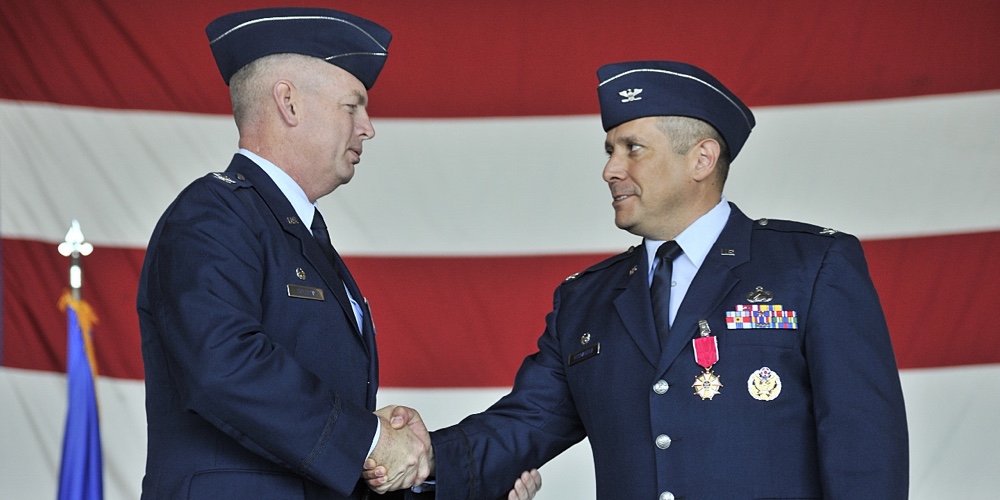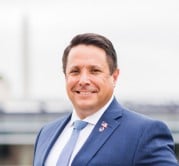Successful handoffs
 Then Colonel Hernandez shakes hand with his successor as he departs from the base
Then Colonel Hernandez shakes hand with his successor as he departs from the base
Over the last 18 months, several of our member CEOs have announced their retirements. Many are long-time supporters of our military and attendees at our DCUC conferences and events. We wish them all the very best and offer our sincere congratulations on a successful career. We are very happy for each retiring CEO and these leadership transitions remind me of the military “change of command ceremony.”
Throughout my military career and in the years since, I have witnessed many of these ceremonies. I was either in the audience, in the formation, or on the stage. It is meant to be a clean ceremony that leaves no doubt as to who is in command of the unit. In fact, the unwritten rules for the outgoing commander can be summarized as “the 3 B’s” – Be Thankful, Be Brief, and Be Gone.
First, it is important to thank all those who helped you during your tenure as the commander (or CEO). This includes your spouse (big mistake with heavy penalties if you fail to do this) along with your family. It also includes your boss (everyone has one), your team, and your colleagues.
Second, it was always better to keep your comments short. Everyone should already know most of the details. Plus, the formation has been standing in place for over an hour. The longer the outgoing commander speaks, the more people literally pass out and must be dragged off for medical attention. The same need for brevity applies to the incoming commander. While there are no military formations in a CEO transition, it is important to keep things brief as well.
Finally, once the ceremony concludes it is important to immediately leave the base and let the new commander have the spotlight. I was the outgoing commander three times during my military career. Each time my wife and I had our car fueled, packed, and everyone ready to start the cross-country journey to our next assignment. The only stop we made was to change into comfortable clothes and check out of our room at the billeting office (the Inn on base). Other than many pleasant memories, the only thing left was the image in the rear-view mirror.
Everything else that involves getting the new commander up to speed is left to the deputy commander. This includes all the immersion briefings; initial meet-and-greet meetings with superiors, fellow commanders, and civic leaders; plus, a windshield tour of the base. A smart deputy already has this planned and ready to execute.
Yet, none of this happens until after the ceremony. It is considered a breach of protocol for the incoming commander to interact with the unit prior to the change of command ceremony. There can be only one commander at a time—this is a time-honored principle of command.
The only items I ever left was a very capable team, a short continuity folder for any unfinished tasks and projects (although my goal was always to leave nothing unfinished), and a personal letter congratulating the new commander and conveying my best wishes for success. I always cleaned out the office—any notebooks/papers/briefing older than 6-months was shredded. If it was important to keep, then we scanned and saved it on the deputy commander’s computer. Plus, I made sure the command guidon (unit flag) along with all the other flags, unit signage, and command vehicle were in excellent shape and appearance.
It may sound funny, but I never left my cell phone number. I was mentored in the old school ways—so everything that happened after my departure was for the new commander to figure out and solve. Again, a capable team and a skilled deputy always make the difference. As I’m sure you already know, the success of your credit union is not only based on the leadership but the strength of your whole team. In any time of change or transition, a strong team will successfully navigate anything that’s thrown at it (even a pandemic).
So, what can be learned from this experience in terms of credit union leadership transitions? Hopefully, not much, because many of these same principles and protocols should already be in place at your credit union. If so, then this article is great for reinforcing these same ideals. If not, then now is a great time to start thinking about successful handoffs and what kinds of things you, your deputy, and your team should consider.





